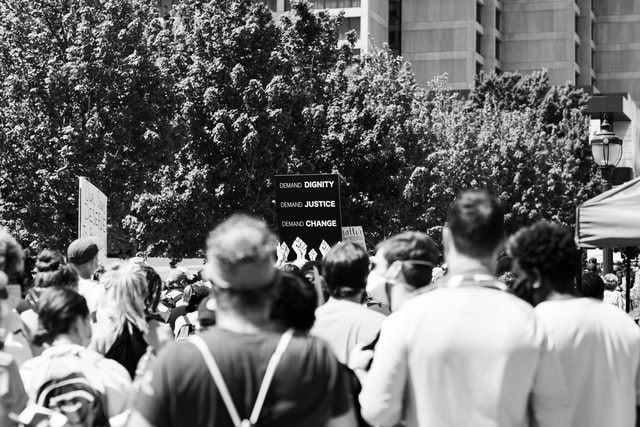When I wrote my first post of the year on compassion, little did I know how important that would turn out to be for 2020, or what lay in store for us. It’s more than I can get my head around.
And yet we should have been better prepared for coronavirus – the information was there for anyone who cared to pay attention. Witnessing the decision-making of those in power about how the pandemic is managed has exposed a serious problem of ethics and the reality of moral injury. Many wonderful people found and are finding ways to contribute to support those in need, but one enormous difference most of us have made already is observing lockdown. In his free practice sessions, Jon Kabat-Zinn has described lockdown as a ‘radical act of compassion’, an incredible commitment we make to protect others. Remembering and resting in this compassion can help us when we are feeling the impact of social isolation and distancing. But we also know that some of us will be much more severely impacted, those whose age or health puts them in a vulnerable position, those living with domestic abuse, as well as those directly impacted by the virus, needing hospital care or suffering bereavement. Not to mention the strain on key workers. It’s hard to imagine the potential scale of trauma.
We seem to oscillate between the pain of isolation and the optimism of community building. Certainly the start of lockdown saw a great deal of hopefulness and rallying together of communities, but there are some indications that this is already dwindling in favour of self-preservation. We have our radical act of compassion, still being observed by the majority, contrasted with the recent hideous scenes and anti-social behaviour at British beaches.
So much about pandemic has forced us to re-evaluate the way we live and work, and this moment is frequently cited as an opportunity to make fundamental changes and re-prioritise according to our values, for better health, wellbeing and a cleaner environment. And then through this rang a horrifying act of racist police brutality, witnessed by the world…during a pandemic where black and ethnic minorities are disproportionately affected. Thousands took to the streets to protest: finally, something is changing. It’s time to wake-up. Committing to re-education about race is a collective responsibility.
Judith Herman’s seminal Trauma and Recovery illustrates the political moments that allowed understanding and treatment of trauma to advance. Written in 1992, she briefly touches on race at the end of the book, and this must now be the moment for a greater and more widespread understanding of racialised trauma. Reesma Menaken, author of My Grandmother’s Hands, has put together a free short course of five talks to get started with understanding racialised trauma. He talks about the constriction that may be felt in white bodies at just a conversation about race. We all need to be able to sit with dis-ease if we are to have the strength to move forward with openness and humility.
I began the year writing about a favourite teacher, Tara Brach, and am so grateful for the many talks and practices she makes available with her characteristic humour and gentle wisdom. You can’t go wrong with any of her talks, but for this current political and social moment two to try are ‘Facing Pandemic Fears with an Awake Heart’ and ‘A Courageous Presence with Racism’.
